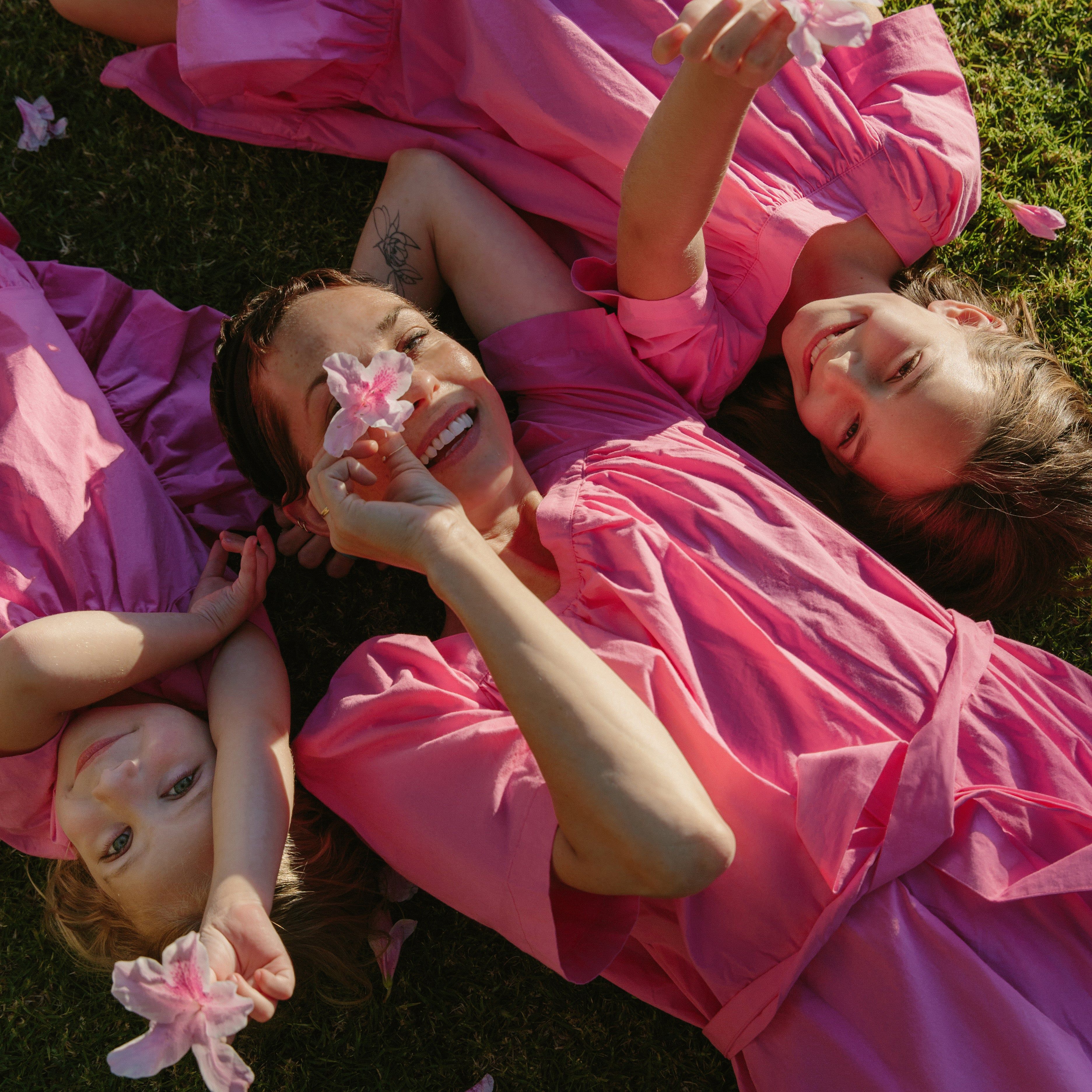
Photographer Nicki Sebastian on Finding Light and Wonder Through The Darkest Days of Her Cancer Journey
We don't know anyone more radiant than photographer Nicki Sebastian. She talked with fellow survivor Phoebe de Croisset about the life-changing moments throughout her leukemia treatment that taught her to look for beauty in unbearable darkness.
- Photography
- Nicki Sebastian
- Interview By
- Phoebe de Croisset
I was the first person I knew who had cancer when I was diagnosed with Leukemia at the age of 24. From that moment on, through a two-year long treatment, a relapse and an eventual bone marrow transplant, I clung to the stories of people who had survived it. Those stories—and people that had lived them—were such a powerful force along my own journey through illness, and I privately vowed that if I came through it, I would become that person for someone else.
So when I heard that Nicki, the radiant young mother and photographer I’d befriended through my work here at Maisonette had been diagnosed with leukemia, I wrote to her that same day. I needed her to know it had happened to me. That I was here, and that I’d survived it. I needed her to know she would too. We talked on the phone the night before she went into the hospital for her induction, which included a month-long isolation from her husband and two daughters, from her life as she knew it. She was terrified, of course; battling a life-threatening illness, one can’t help but think about if the worst should happen, and with two young daughters at home, these thoughts were unimaginably difficult to contemplate.
And yet, Nicki counted her blessings. Today, almost exactly one year after that phone call, I spoke with Nicki about that period; the earth-shattering diagnosis, the unbearable aftermath, but also those blessings she held onto—and still does; the moments of overwhelming beauty and light, the deep appreciation for the little things.
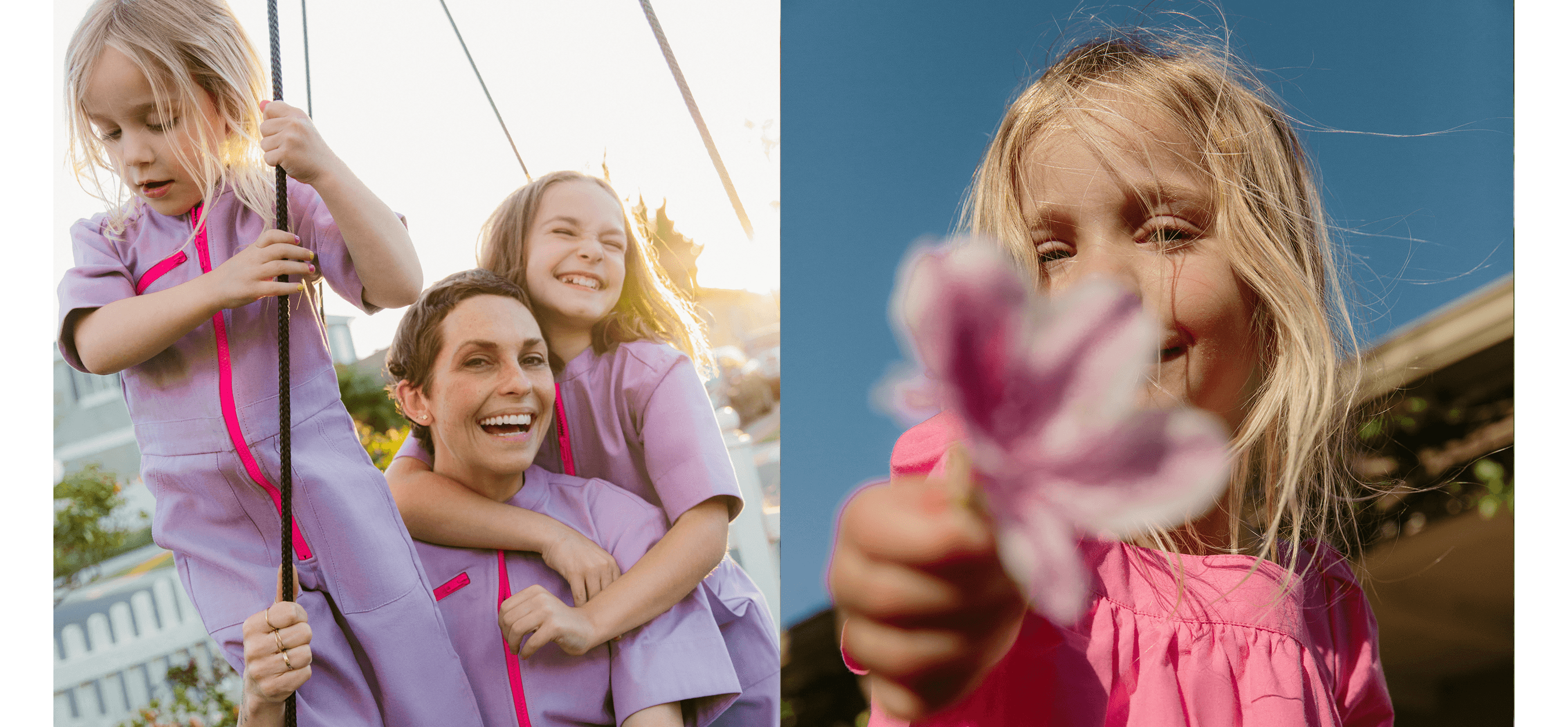
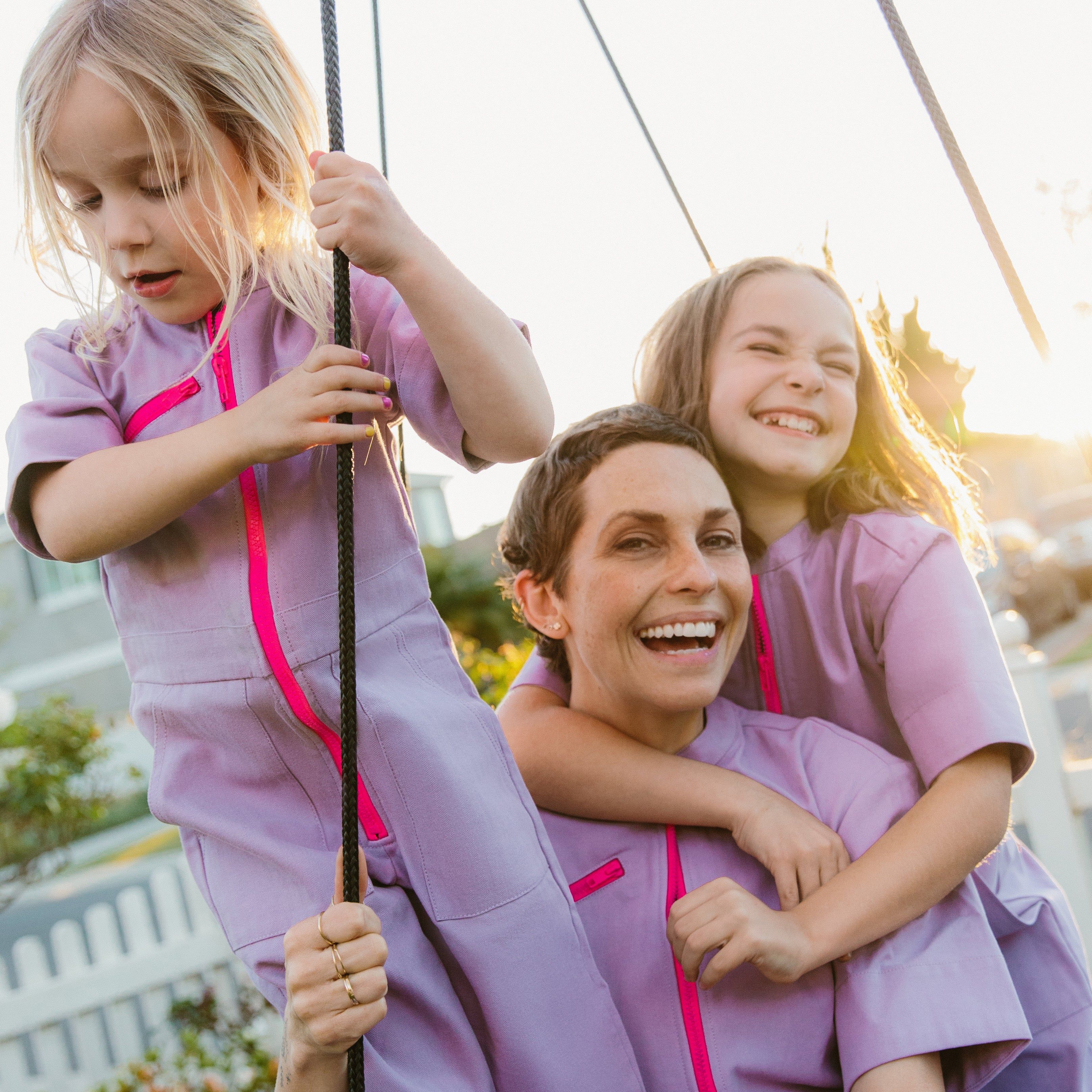
PC: Receiving a cancer diagnosis is a transformational moment; everything seems to fall into a “before” or “after” from that moment on… Can you tell us a bit about your diagnosis? When and how it came, and can you try to describe what you were feeling?
NS: I don't mean to be alarmist, but my diagnosis truly came out of nowhere. I hadn't had a proper physical in ages (since the birth of my youngest, four years prior), so I snagged the first available appointment with a new general practitioner. At the end of a very cut-and-dry check-up, I casually mentioned that I had been experiencing night sweats on and off for years and that I had assumed they were a side effect of my Zoloft and/or hormone-related (both are quite common). My doctor ordered a complete blood panel and they found one small but significant red flag—which then lead to a bone marrow biopsy and the discovery of leukemic cells in my marrow. I will never forget the call from the hematologist—my ears started ringing and I nearly passed out. I have feared cancer my entire life (I'm a very anxious person by nature), and now I was quite literally living my worst nightmare. It all felt like a huge mix-up because I had absolutely no outward symptoms, no family history, and I always considered myself a healthy woman who exercises regularly, eats organic when possible, etc. Never in a million years did I think this would happen to me, but the universe clearly had other plans.
PC: Talk about the days leading up to your being admitted into the hospital. As a wife - and a mom - what were the thoughts going through your mind?
NS: After the traumatic diagnosis of acute myeloid leukemia (a rare and aggressive form of blood cancer), everything became a blur. I was informed that I would have to go through three extremely intensive rounds of chemo that basically wipe out your entire immune system (along with the "bad" cells), and as such, patients are required to stay in the hospital for a month at a time because any tiny infection or cold or ailment could land me in the ICU or worse. Shortly after the doctors told me I had leukemia, I was informed that I would basically be living in a hospital room, attached to an IV pole 24/7, and I was allowed one designated visitor (due to COVID restrictions and the fact that I would have no white blood cells in my body). I was beyond devastated—in fact, there isn't a word in the English language that properly conveys my overwhelming shock and sadness. So much of our household is run by me (a self-described control freak) and leaving my girls for weeks on end to undergo such intense treatment was terrifying to say the least. Luckily I have an extraordinary support system, and my husband, parents, in-laws and dear friends all stepped in to carry me through and make sure my kids felt safe and loved and cared for. I cannot begin to express my gratitude for my loved ones who carried the weight of maintaining some kind of normalcy for my girls while I was admitted and incapacitated—family and community is aboslutely everything.
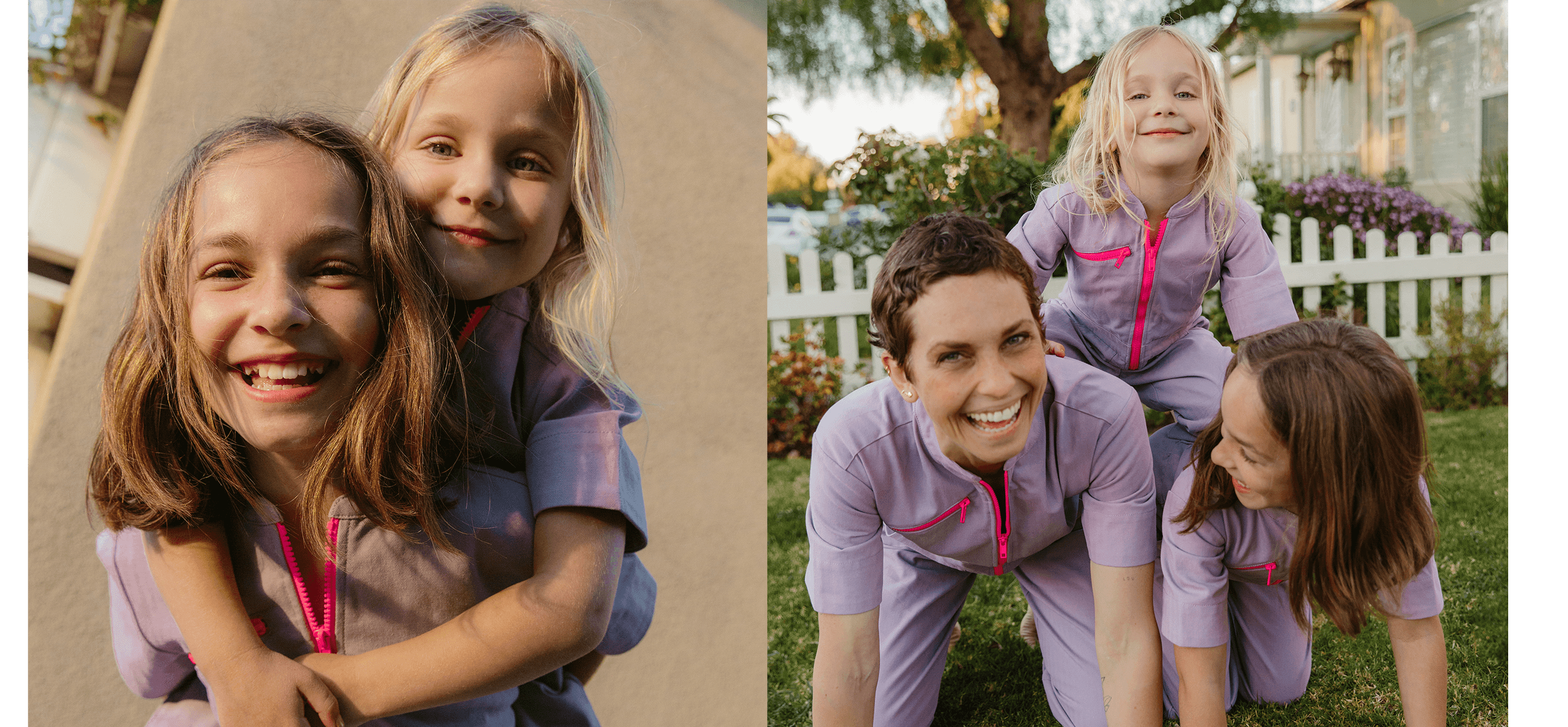
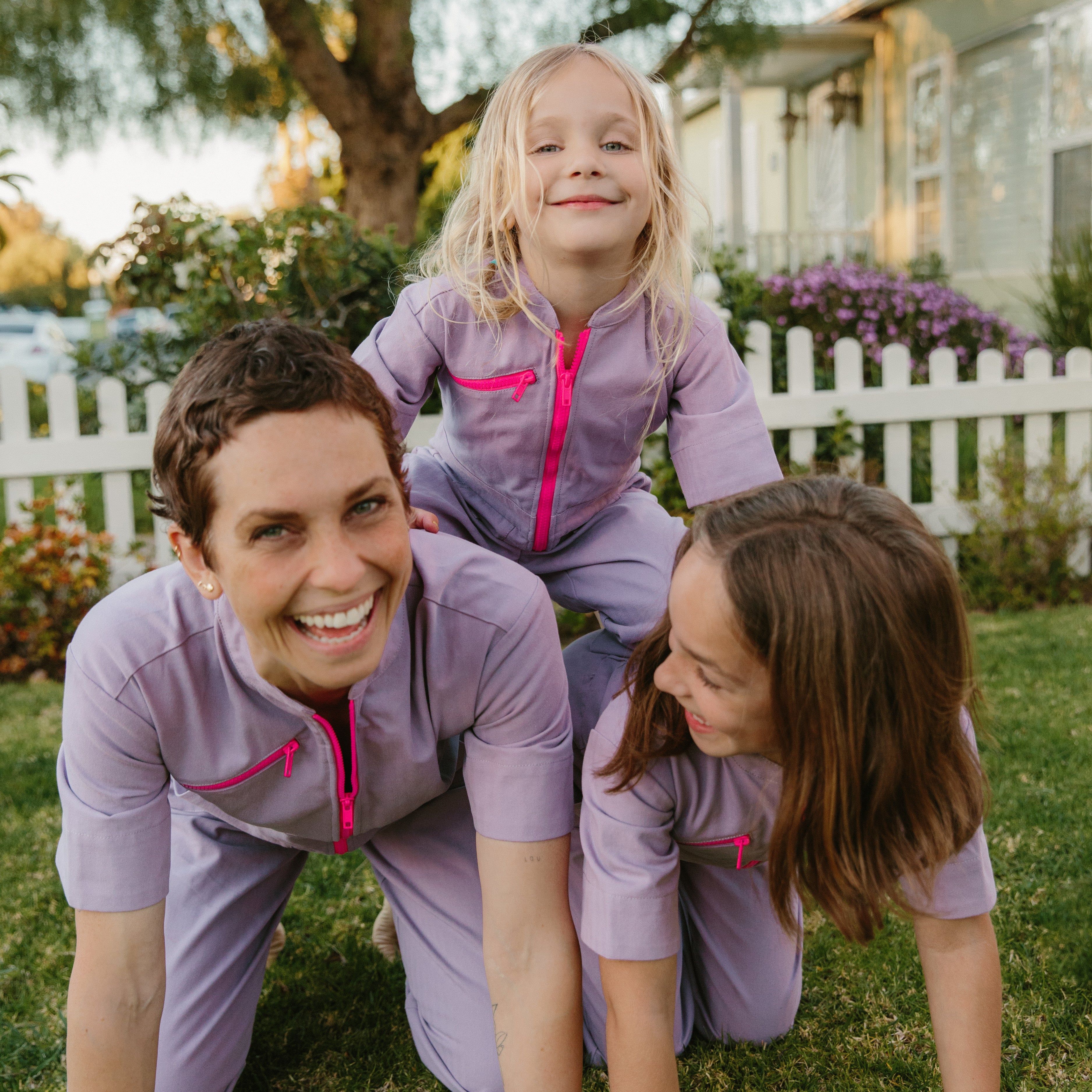
PC: As a parent, and particularly as a mom, there’s this unspoken rule of, moms don’t get sick. And even when they do get sick, they are still caring for everyone else. But what do you do when the unimaginable happens? How do you let go of some of that innate pressure, and let yourself be mothered instead?
NS: I've lived my entire life until now as a person who refuses help, who takes on more than necessary, who insists that she can do it all no matter what the cost, and who pushes through pain and hardship so as not to drop balls or lead others to believe that she's struggling. My first and most important lesson was this: all of the aforementioned traits and habits needed to be thrown out the window, and I needed to accept help because my life literally depended on it. I was so afraid to show my girls my weaknesses, but I came to realize that accepting assistance and even asking for aid was actually me at my strongest. I was essentially modeling an important life lesson for them, and as a result, they now know that it's okay to reach out when you're in a bind and that there's a marked difference between stubbornness and determination.
"Witnessing their mother being mothered was a beautiful testament to life's continuity, and the acts of love that came from so many in turn made my children feel held and bolstered by everyone in our circle and beyond."
PC: I think that dichotomy of light and darkness is so powerful. This idea that with great difficulty comes great reward. The bad moments are so bad, but the good moments take on this almost magical quality; it’s overwhelming and terrifying and heartbreaking in the most beautiful way. Can you talk about some of those moments?
NS: The notion of light and dark existing simultaneously couldn't be more appropo given the times we're living in. The heaviness of the world is almost unbearable if we let ourselves spiral into doomsday topics, and yet, here I am typing out this interview while feeling a 72-degree breeze through my windows and listening to jazz classics and wearing my softest flower socks. The duality of these experiences is at once devastating and beautiful, and ironically, I believe the darkest depths of our time here on earth is exactly what reveals the most lightness and wonder in other facets of our lives. I specifically recall my hospital room during my third round of chemo when I was at my weakest—without hair, without eyelashes, without any motivation to walk my daily laps around the ward—and each morning I would hobble over to the massive window and open the shades, and the sunlight would roll in like an avalanche of radiance. I remember noticing how that brightness would touch every inch of my room and somehow make all thoses medical machines and cords and stark corners appear almost soft and luminous. And I would climb onto my window seat and just absorb that warmth while I waited for the doctors to make their rounds—and those two hours of my day before the light shifted were, dare I say, pleasant once I found ways to uncover the small joys—and relish them without guilt!—even in the midst of so much adversity and grief.
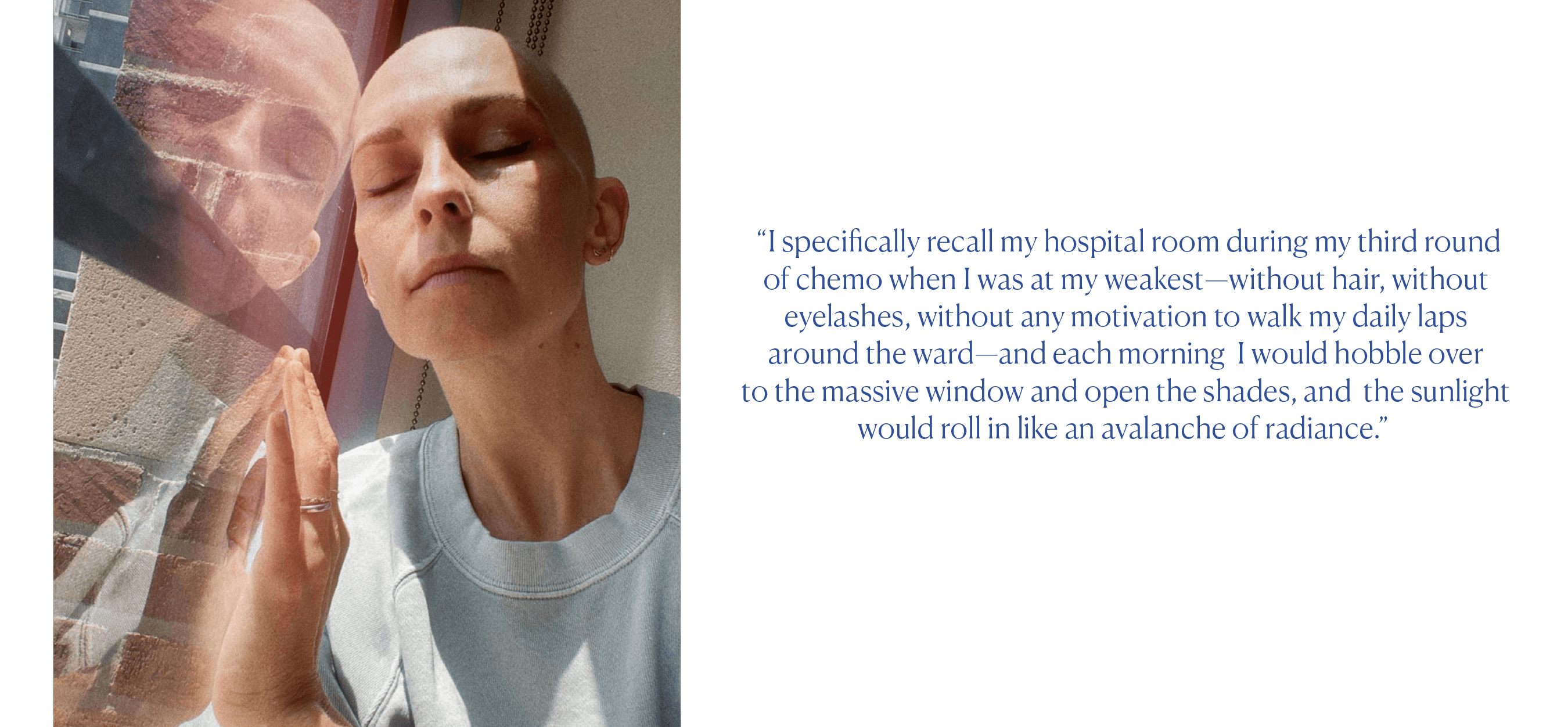
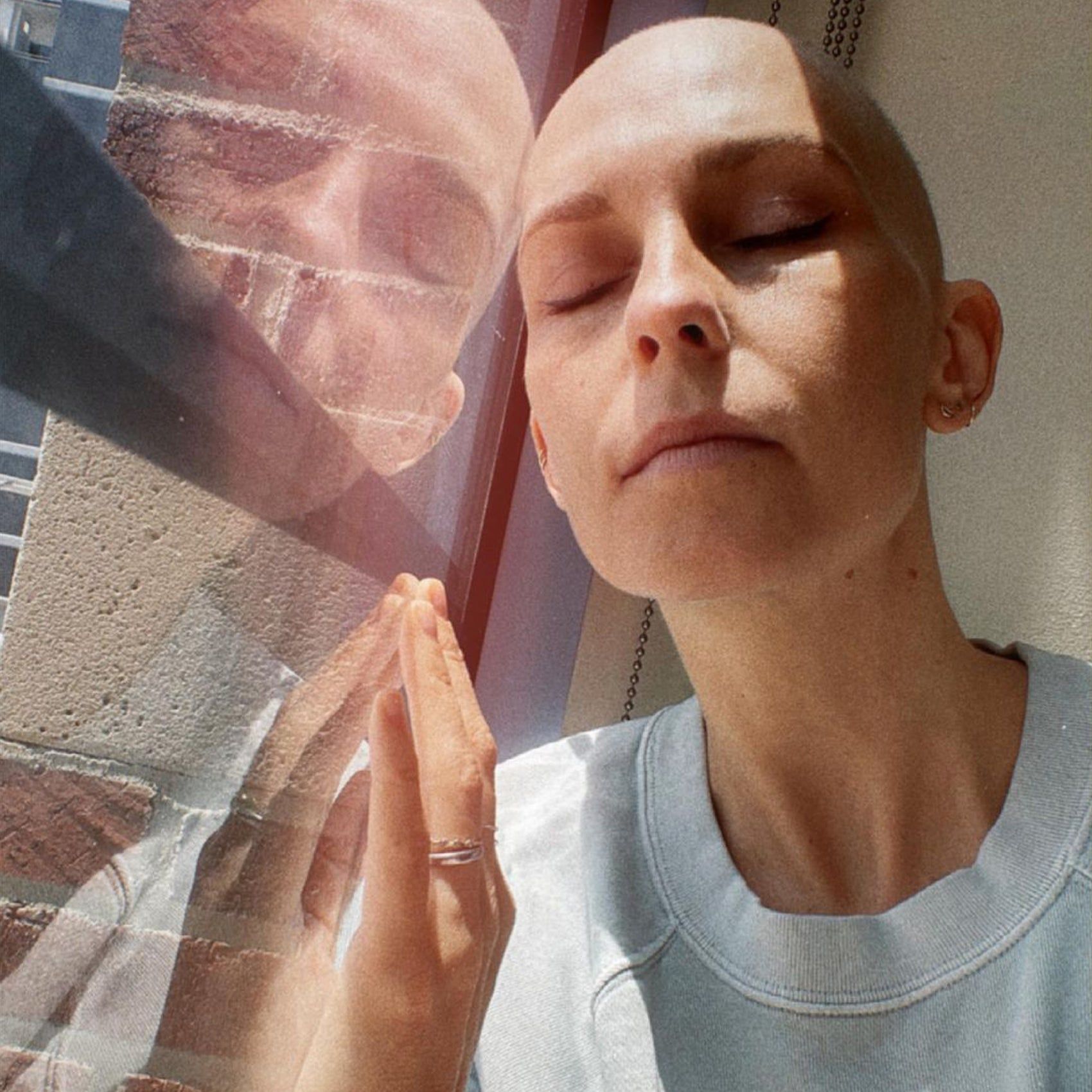
PC: What were some of the things that sustained you during your time in the hospital, and while you were in active treatment? What did your village look like?
NS: The amount of outreach and support was mind-blowing. Our family received letters and care packages and calls and visits from countless old friends and new ones, family members, and even those we never met who follow me on Instagram! We were all so floored by the ways in which people showed up—and I've kept every single note that landed in my mailbox. I was in the hospital for a total of 86 days, and reading those words of encouragement and tales of success stories truly got me through each minute in my sterile, confined space. Also, my extraordinary husband was by my side nearly every single day as my caretaker and saving grace—he weathered the storm with me, made me feel safe and protected, and somehow juggled home life and work while maintaining an incredible steadfastness in the face of so much adversity. And my friends! My beautiful, creative friends also made the most incredible video compilation to Wilson Phillips' "Hold On" (which I still watch when I'm having a hard day), and, most notably, they put together a flash mob outside my hospital window dressed as flowers and a giant unicorn and held up huge signage that read, "Nic This in the Bud." That moment brought me to my knees as I watched from my 6th floor window and sobbed tears of appreciation—and I guarantee the oncology nurses and hospital staff still talk about it to this day.
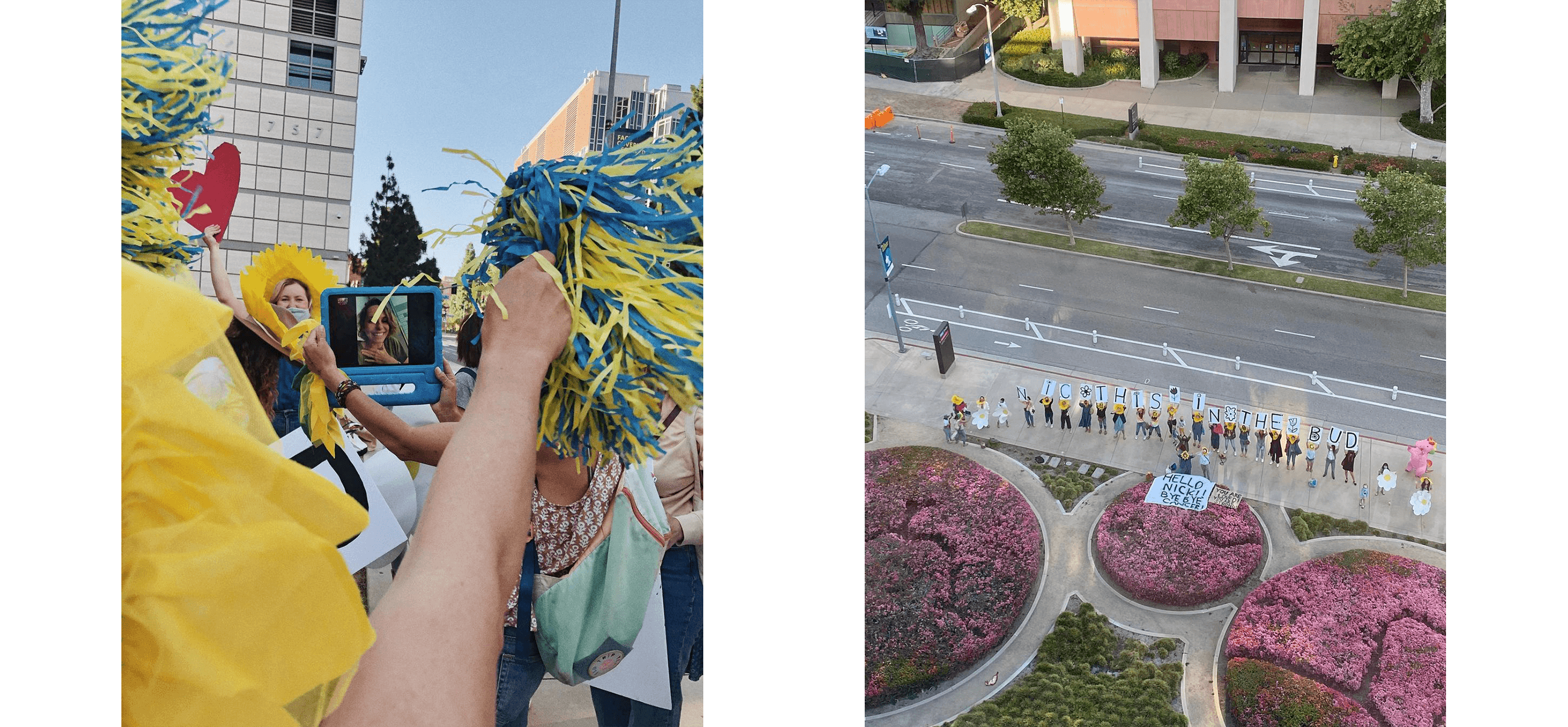
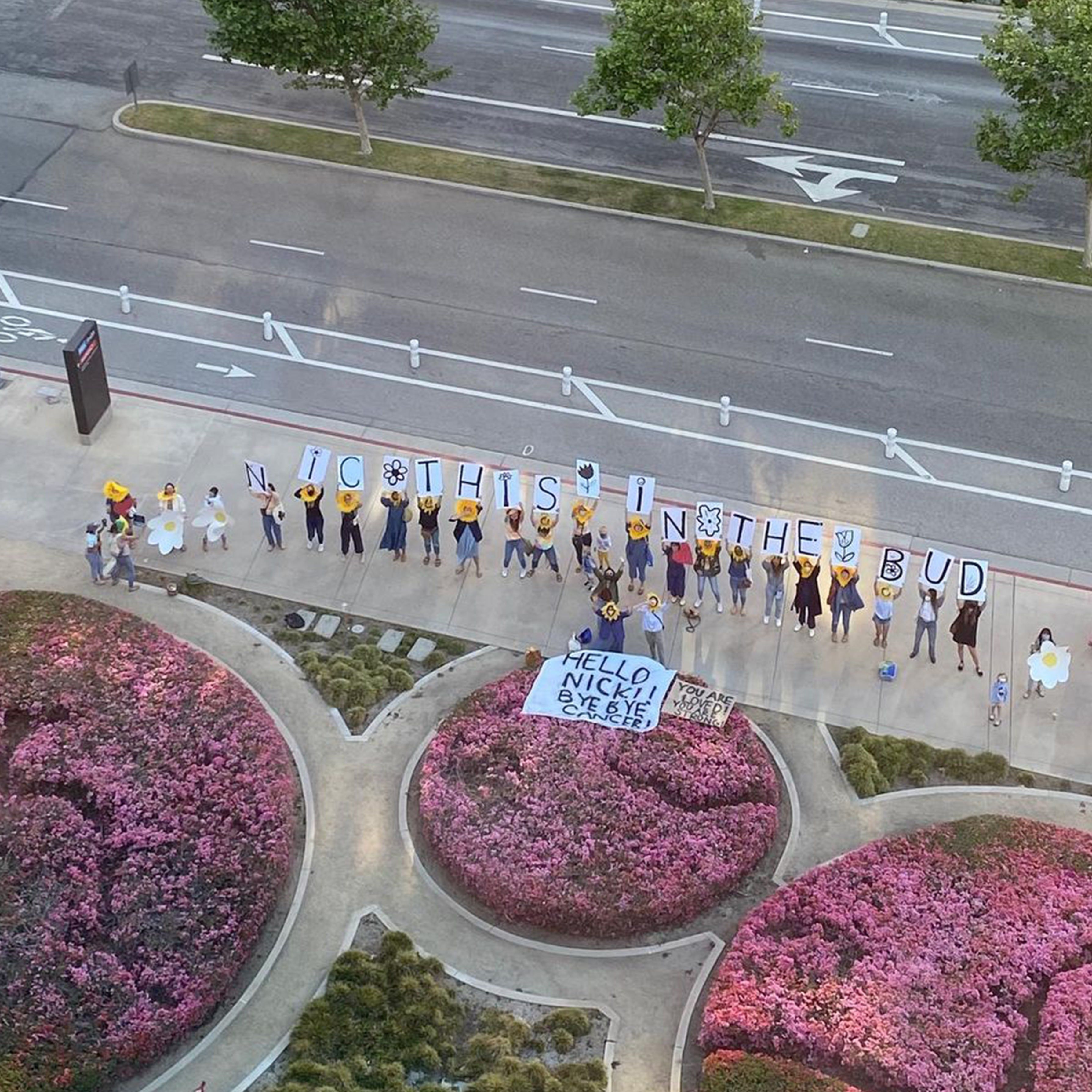
PC: And is there perspective that comes from living through this kind of experience? A different way of living with your family, of loving your girls, of taking care of yourself?
NS: The perspective shift was life-changing, and as cliche as it might sound, I am living out my post-treatment days with an intense sense of renewal and gratitude for every blade of grass. I can't say that every day is glorious and cloud-nine-like, because I still suffer from bouts of intense PTSD and anxiety surrounding the chance of recurrence, but I will tell you that I am so much more present with my family and even in the midst of the most mundane chores. I have found unadulterated delight in the smallest of tasks, and I look forward to moments that I used to overlook: making myself tea, eating dark chocolate after dinner (and every other meal), flipping through interior design magazines, taking a long bath with a fun bath bomb, noticing new blooms in our front yard, getting back film scans from the lab. I no longer need to plan elaborate outings or schedule my day to the brim—my contentment has become so much more simplistic and my calendar so much more open. I still can't fully laze about (I'm working on it!), but I'm really improving in the areas of soaking up completely, experiencing fully, and appreciating wholly.
PC: Finally, when the worst is over, the treatments have ended, and you slowly begin to untether from the security of your medical team and routine (even though you hated it so much!) it can be really difficult to re-enter the land of the well. It’s still early days, but how are you navigating this transition? And what are some of the things you’re finding joy in, and looking forward to?
16NS: I am so appreciative of this question in particular, because survivorship is an entirely different kind of difficult—and until I went through this, I was completely unaware of the complexities of living life after cancer. Before being diagnosed, I had ignorantly assumed that remission meant "done" or "cured" or "healthy again," and that once treatment is over, a patient just resumes normal life. That couldn't be further from the truth. While I obviously felt relief and total elation to be discharged from the hospital and given the good news that there was no evidence of disease in my marrow following months of chemo, I also felt like I was suddenly pushed off of a cliff and asked to figure out how my parachute works on the way down. The weeks and days at home after treatment have been tricky to navigate. I'm still on oral chemo for maintenance, so some days I feel fatigued and nauseous and just utterly awful, and yet I still have to work and be a mom and run a household and meet deadlines—and on top of it all, I have this gnawing anxiety that sits with me constantly as I often fear recurrence (because it's not uncommon). I'm also still getting checked regularly with visits to the oncology clinic for bloodwork, so I essentially have a foot in both camps of the Sick and Well—and that's a precarious place to exist. Some days I have the urge to tell everyone that I'm still not well despite the fact that I have hair again and I'm not sleeping in a hospital bed, but other days I just want to pretend like this never happened and act like the old Nicki that had so much energy and an easy laugh. But both of those options aren't exactly healthy ones, and I'm learning quickly that a new version of me is now in the early stages of development.
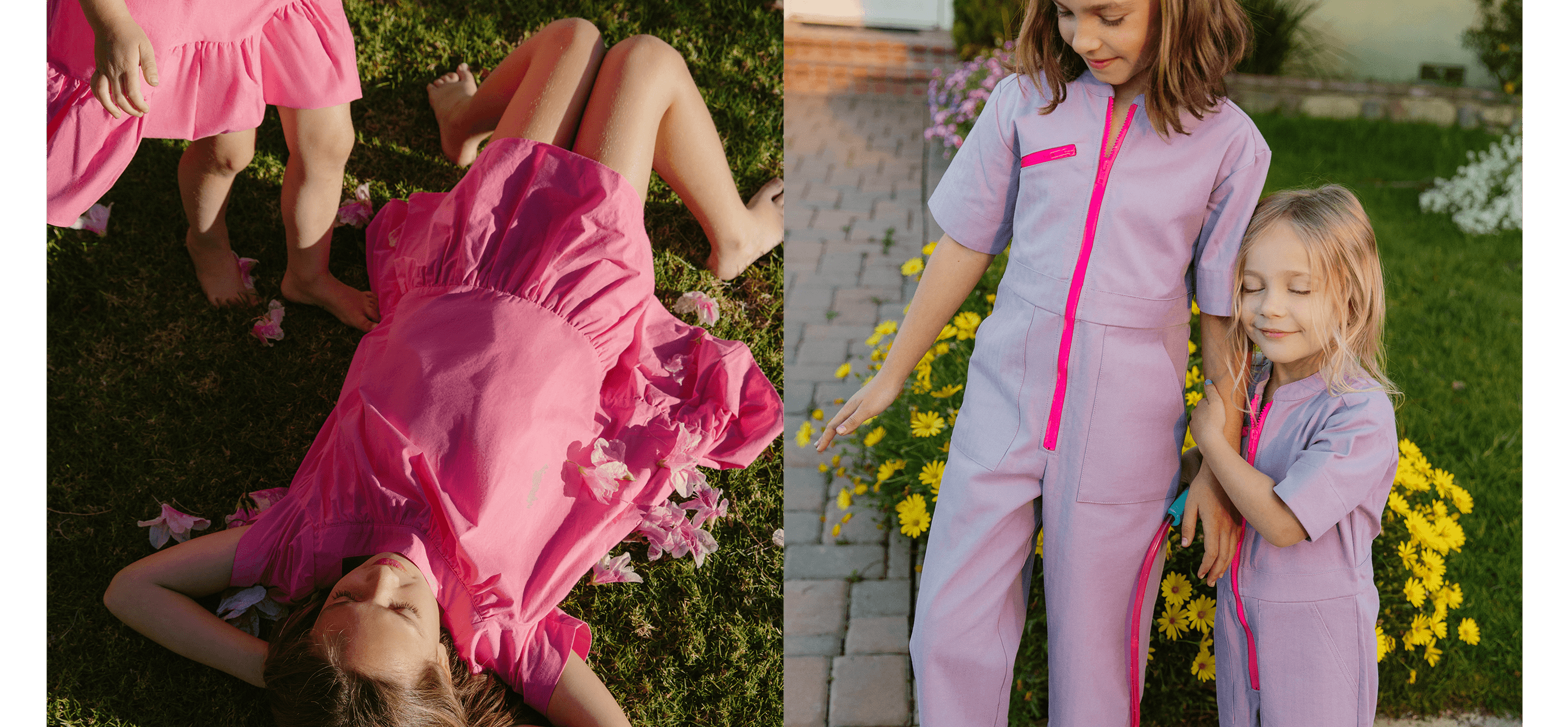
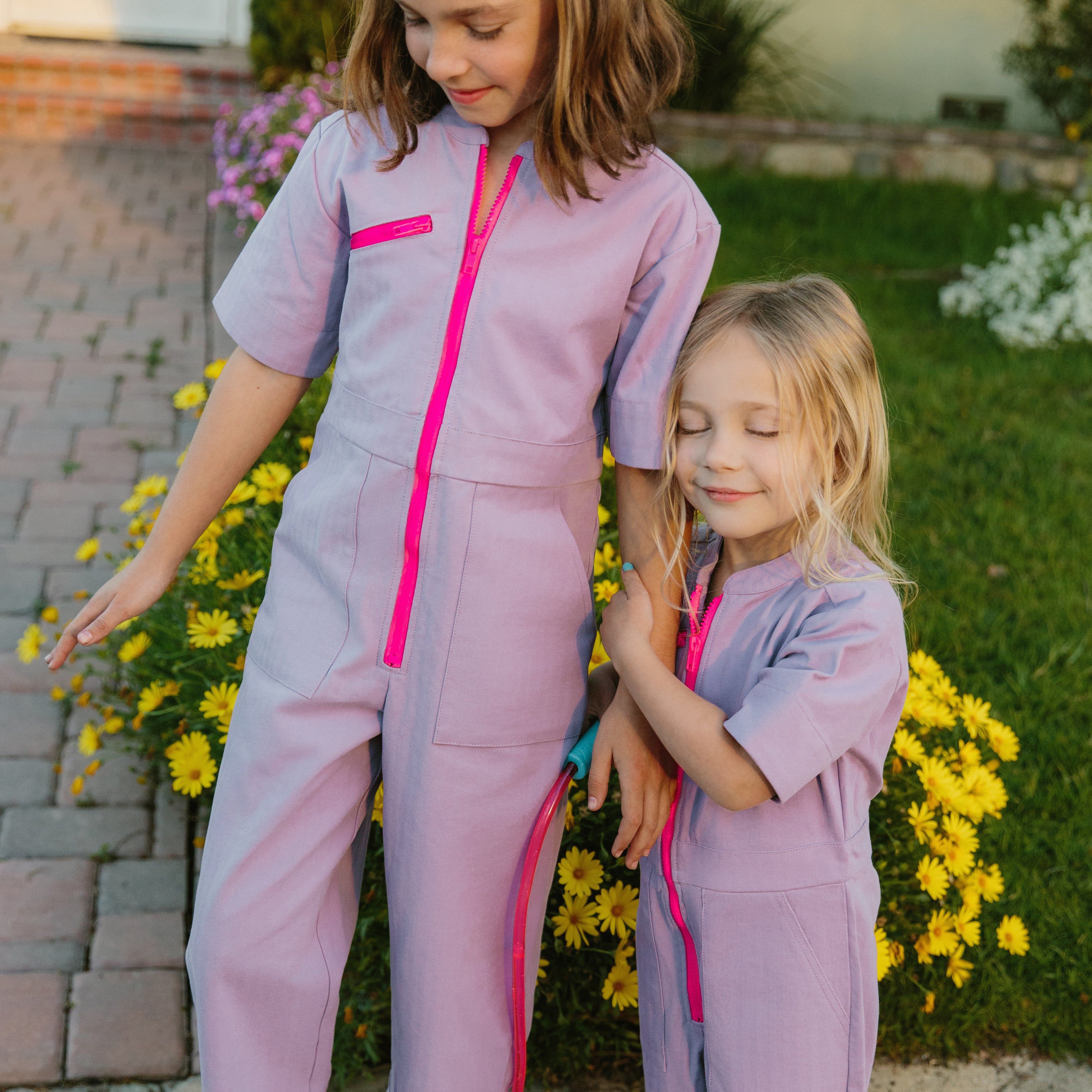
PC: Talk more about the silver linings, the connections you’ve made not just to people experiencing cancer, but to anyone struggling to survive a hard thing. I think the more we share, the stronger we are collectively; women truly are warriors in the most incredible way!
NS: The silver linings of this experience abound, and while I can't stress enough that enduring cancer treatment has been the most trying time of my life both physically and emotionally, I also want to acknowledge the incredible humans I've connected and bonded with through the commonality of undergoing difficult challenges. I realize that everyone processes disaster and heartbreak and suffering in different ways—and it's entirely okay to go inward during hard times—but my openness and vocality throughout this journey has introduced me to some of the most important friends and confidants, ones who I never knew existed until I was diagnosed. I have had innumerable phone conversations with people I still haven't met in person to this day, but who shared their stories and came into my life when I needed to hear their trials and triumphs most: fellow moms who also had leukemia, nurses who have seen more struggle and sadness than most, people with partners who have tragically passed from cancer, parents who are now recovering from transplants, young adults who are caring for ailing parents and finding themselves in a place they never imagined as a naive child, and the list goes on. These connections will last a lifetime, and it has been (and still is) so incredibly powerful to be reminded that the human experience is fierce and unrelenting and we are all, in some way, facing unbearable obstacles (despite what social media conveys).
Nicki Sebastian
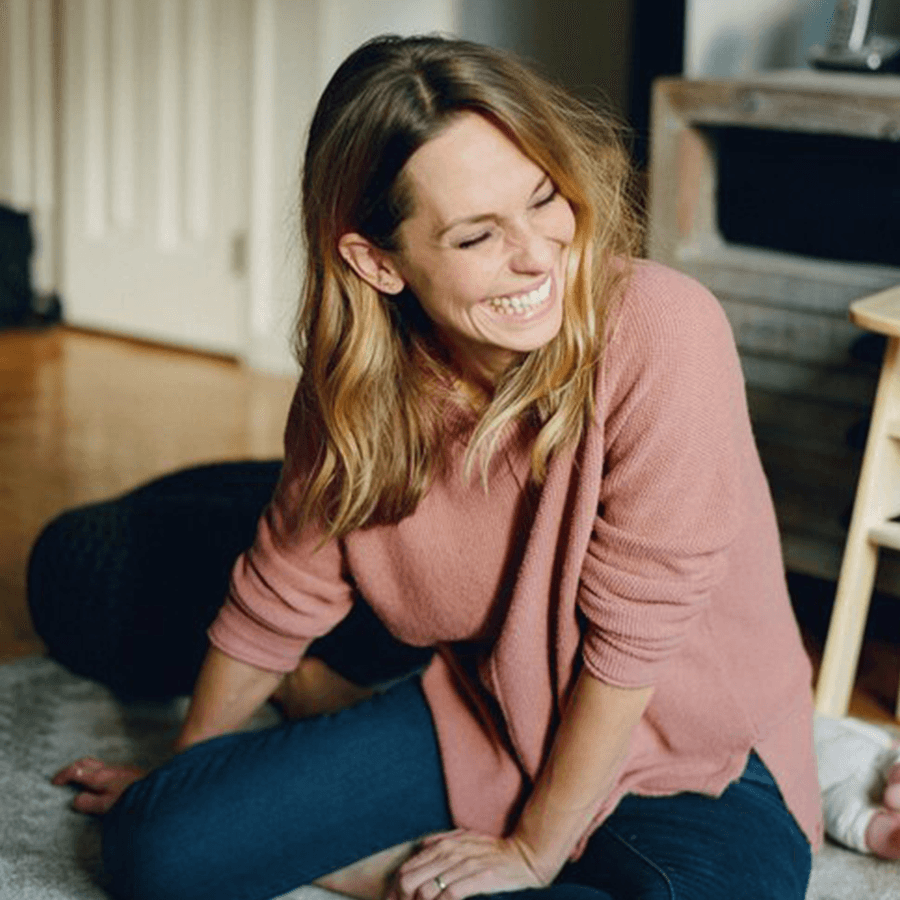
Nicki Sebastian is a Los-Angeles based commercial, editorial, and family photographer who divides her time between clicking her shutter button on behalf of some of the finest female-owned companies around, capturing the beauty and chaos of motherhood, and raising two girls of her own. Find her on Instagram or shop her prints for a cause.
Nicki and her daughters Cami and Cece wear Neon Rebels throughout.